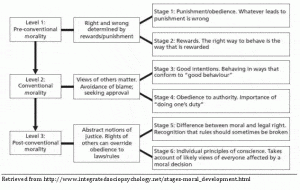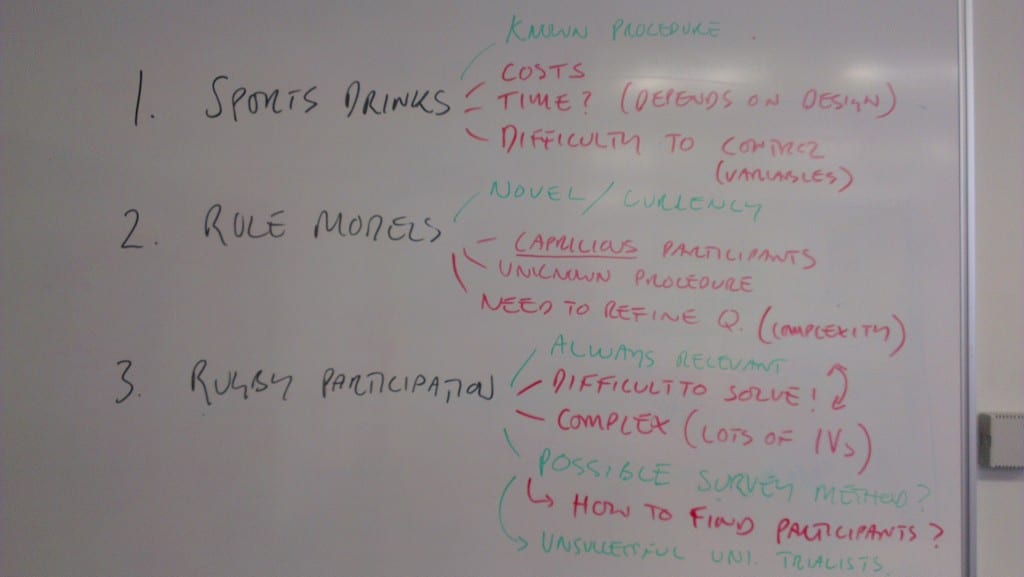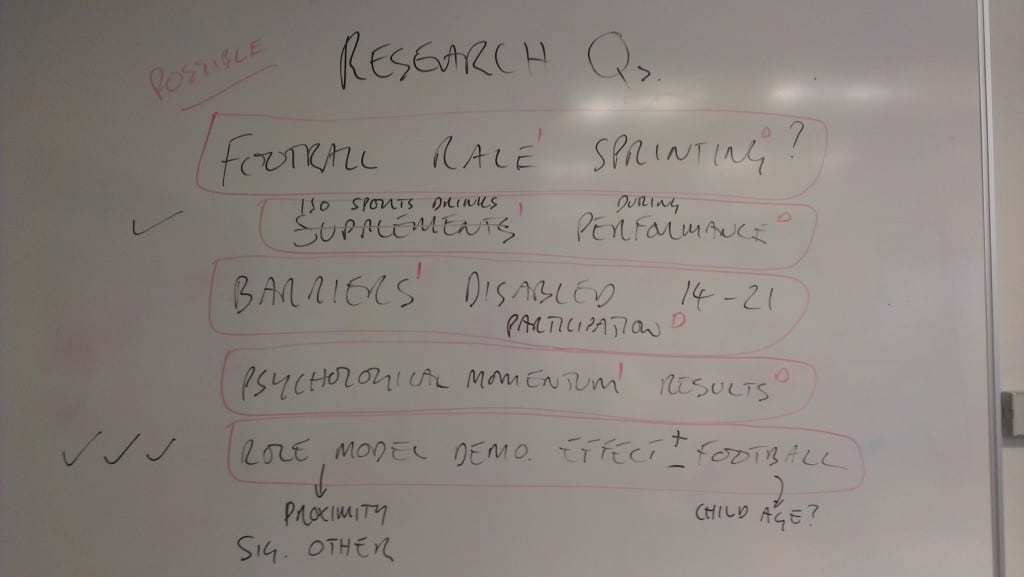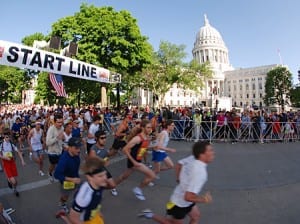With a very small group this week, we still managed to get some useful work done. The two main tasks completed in the session were:
- A summary of the literature as it applies to our question;
- A review of Kohlberg’s theory of moral development in children, to help answer the new questions.
In the summary of literature we tried to answer the guiding question we began with:
To what extent do professional players (role models) influence the behaviour of young football players?
The papers we read led us to the following basic answers:
- Children seem to be especially attracted to high status role models (particularly boys);
- Social Learning Theory (SLT) classes elite athletes as indirect role models;
- The influences of role models can be complex and young people can be discerning in how they interpret (and choose to follow or reject) role models’ behaviour;
- Young people can ‘compartmentalise’ the bad behaviour of role models, whilst accepting the good behaviour;
- The media tend to cast a one-dimensional picture of sporting role models, but our analysis of Luis Suarez points to a more complex picture (i.e. his on-field talent is the focus of praise; whilst his immoral behaviour – racism, diving, handballs – is condemned;
- There is little research that focuses on how role models affect children at younger ages;
- The age at which children develop the ability to make ‘complex readings’ of role models is not yet known;
- “Further research may show that young people can make informed and articulate judgements about sports stars as villains, fools and heroes” (Lines, 2001, p. 301)
So, we are left with a new, novel question that is suggested by the previous research:
At what age do young male footballers develop the ability to ‘compartmentalise’ the behaviour of professional players as either good or bad (i.e. as behaviour they should or shouldn’t imitate)?
 In order to answer this question, we looked at the best known theory of moral development in children, as developed by US developmental psychologist, Lawrence Kohlberg. In short, he suggested that children develop increasingly complex moral understanding in six broad stages (opposite).
In order to answer this question, we looked at the best known theory of moral development in children, as developed by US developmental psychologist, Lawrence Kohlberg. In short, he suggested that children develop increasingly complex moral understanding in six broad stages (opposite).
Drawing on this theory, we reasoned that the ability not to imitate bad role model behaviour would occur at stage 3 of the conventional level, as this is the point where behaviour begins to be referenced to social norms rather than personal advantage (e.g. I may get away with diving and gain an advantage (pre-conventional) but my coach says it’s wrong so I won’t do it). Other research has suggested that children enter stage 3 as early as age 10, but is more commonly seen as children enter their teens (ages 13-14 and upwards).
So, after all this, we’re in a position, I think, to write a research hypothesis: a statement about what we expect to find (or an anticipated answer to our question, based on theory). Have a go at writing one in a reply to this post…!



